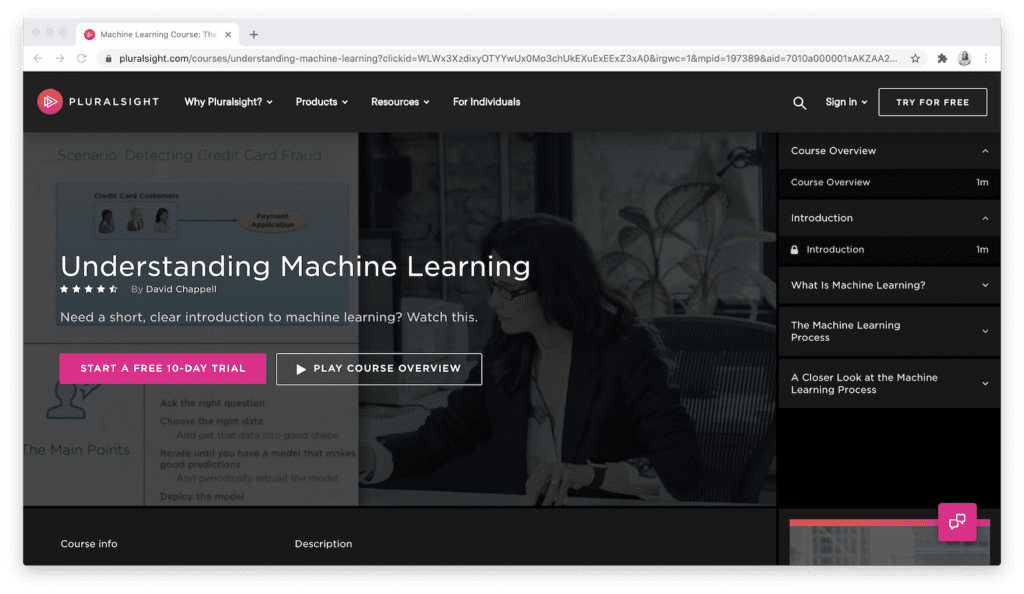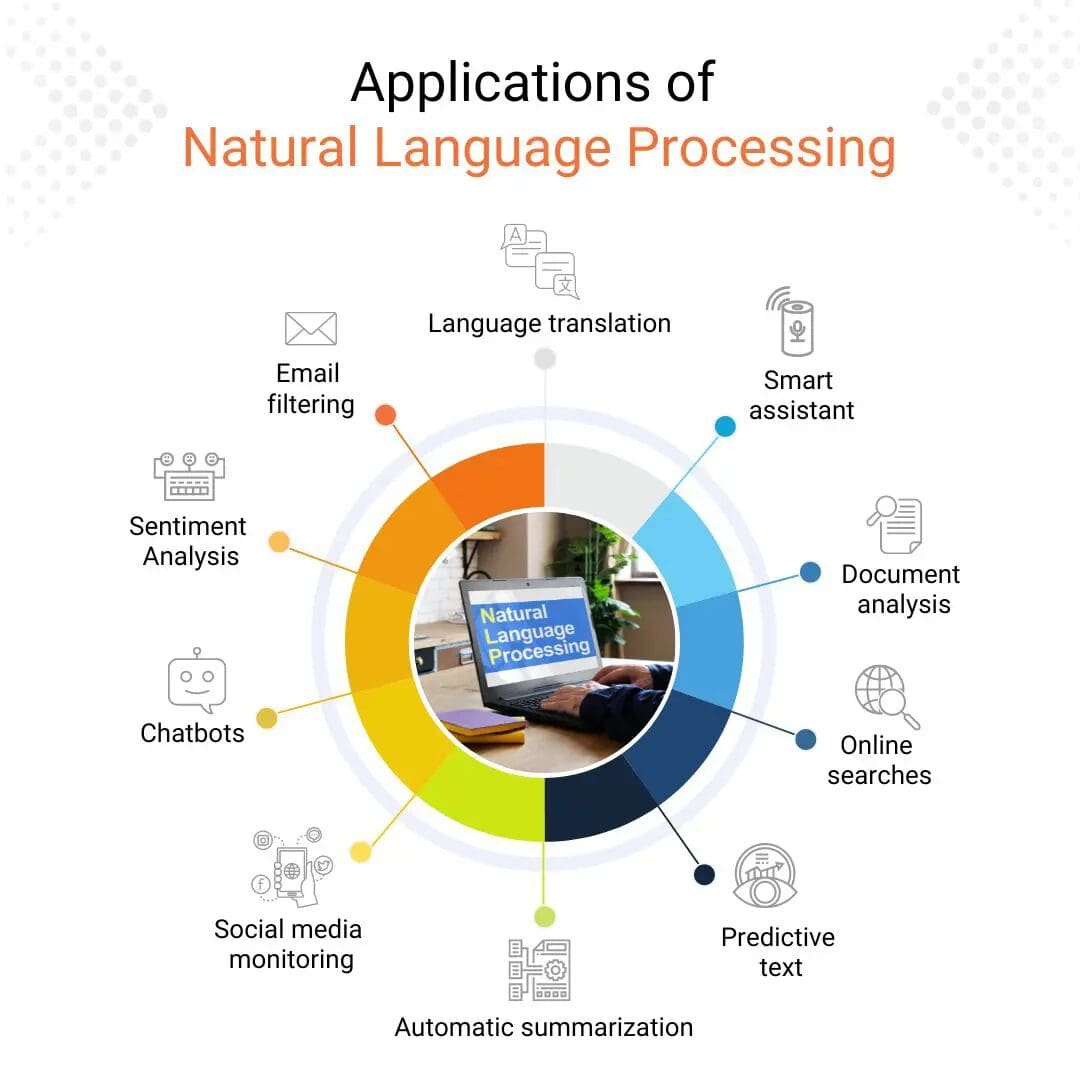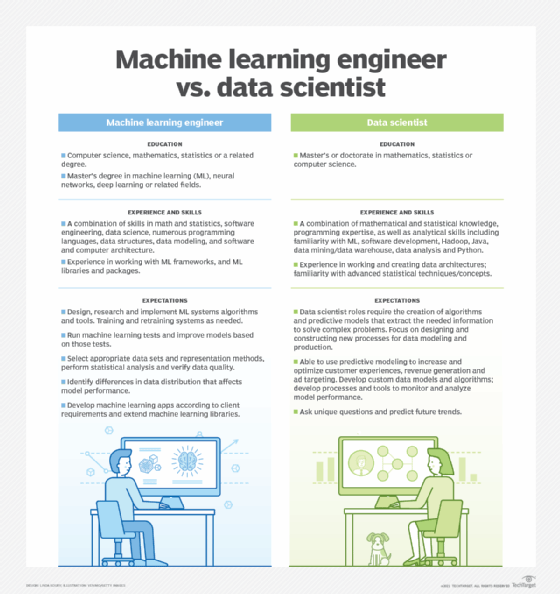All Categories
Featured
Table of Contents
My PhD was one of the most exhilirating and laborious time of my life. Instantly I was surrounded by people who can solve difficult physics inquiries, recognized quantum auto mechanics, and can generate intriguing experiments that obtained published in top journals. I really felt like a charlatan the whole time. I fell in with a great group that motivated me to check out things at my very own rate, and I spent the next 7 years finding out a bunch of points, the capstone of which was understanding/converting a molecular dynamics loss function (including those shateringly discovered analytic derivatives) from FORTRAN to C++, and writing a slope descent routine straight out of Numerical Dishes.

I did a 3 year postdoc with little to no artificial intelligence, just domain-specific biology stuff that I really did not find interesting, and lastly procured a work as a computer scientist at a nationwide lab. It was an excellent pivot- I was a principle detective, meaning I could request my own gives, create documents, etc, yet didn't have to teach courses.
About Certificate In Machine Learning
Yet I still didn't "get" equipment learning and intended to function somewhere that did ML. I attempted to obtain a task as a SWE at google- underwent the ringer of all the hard inquiries, and ultimately obtained transformed down at the last action (many thanks, Larry Web page) and mosted likely to work for a biotech for a year prior to I ultimately procured worked with at Google during the "post-IPO, Google-classic" era, around 2007.
When I reached Google I quickly checked out all the jobs doing ML and discovered that other than advertisements, there truly wasn't a whole lot. There was rephil, and SETI, and SmartASS, none of which seemed even from another location like the ML I had an interest in (deep semantic networks). So I went and concentrated on other stuff- learning the distributed innovation beneath Borg and Colossus, and understanding the google3 stack and manufacturing environments, mainly from an SRE viewpoint.

All that time I would certainly spent on maker discovering and computer system facilities ... mosted likely to writing systems that loaded 80GB hash tables right into memory so a mapper can compute a tiny part of some slope for some variable. Sibyl was actually a terrible system and I got kicked off the group for informing the leader the ideal means to do DL was deep neural networks on high efficiency computer equipment, not mapreduce on inexpensive linux cluster devices.
We had the information, the algorithms, and the compute, simultaneously. And also much better, you really did not need to be inside google to capitalize on it (except the huge information, which was changing rapidly). I understand enough of the math, and the infra to finally be an ML Designer.
They are under extreme pressure to get outcomes a few percent far better than their collaborators, and after that once released, pivot to the next-next point. Thats when I thought of among my laws: "The best ML models are distilled from postdoc tears". I saw a few people damage down and leave the market permanently simply from functioning on super-stressful jobs where they did magnum opus, but only got to parity with a rival.
This has actually been a succesful pivot for me. What is the ethical of this lengthy tale? Charlatan disorder drove me to conquer my charlatan disorder, and in doing so, along the means, I learned what I was chasing after was not really what made me pleased. I'm much more completely satisfied puttering regarding using 5-year-old ML technology like object detectors to enhance my microscope's capability to track tardigrades, than I am trying to become a well-known scientist that unblocked the hard issues of biology.
Getting The Machine Learning Bootcamp: Build An Ml Portfolio To Work

I was interested in Device Knowing and AI in university, I never ever had the chance or persistence to go after that passion. Now, when the ML area grew significantly in 2023, with the most current technologies in huge language designs, I have a horrible longing for the road not taken.
Partially this crazy concept was likewise partly influenced by Scott Youthful's ted talk video labelled:. Scott chats concerning how he completed a computer scientific research degree just by adhering to MIT educational programs and self examining. After. which he was additionally able to land a beginning placement. I Googled around for self-taught ML Designers.
Now, I am unsure whether it is feasible to be a self-taught ML engineer. The only means to figure it out was to try to try it myself. However, I am positive. I plan on taking training courses from open-source courses readily available online, such as MIT Open Courseware and Coursera.
Not known Details About Machine Learning Engineering Course For Software Engineers
To be clear, my objective here is not to develop the following groundbreaking model. I just intend to see if I can obtain a meeting for a junior-level Maker Learning or Information Engineering job after this experiment. This is purely an experiment and I am not attempting to change right into a function in ML.

I prepare on journaling about it weekly and recording everything that I research study. An additional disclaimer: I am not going back to square one. As I did my bachelor's degree in Computer system Engineering, I recognize several of the fundamentals required to pull this off. I have strong history understanding of solitary and multivariable calculus, straight algebra, and data, as I took these training courses in institution concerning a years back.
Machine Learning Bootcamp: Build An Ml Portfolio Can Be Fun For Everyone
I am going to leave out numerous of these training courses. I am going to concentrate primarily on Artificial intelligence, Deep learning, and Transformer Style. For the initial 4 weeks I am mosting likely to concentrate on completing Artificial intelligence Expertise from Andrew Ng. The objective is to speed run with these initial 3 training courses and get a strong understanding of the fundamentals.
Since you've seen the training course referrals, below's a fast overview for your understanding equipment finding out trip. First, we'll discuss the prerequisites for a lot of equipment discovering courses. Advanced programs will certainly call for the adhering to expertise prior to beginning: Linear AlgebraProbabilityCalculusProgrammingThese are the general components of being able to recognize exactly how machine finding out jobs under the hood.
The initial course in this listing, Device Learning by Andrew Ng, includes refreshers on the majority of the mathematics you'll need, but it may be testing to find out artificial intelligence and Linear Algebra if you haven't taken Linear Algebra prior to at the exact same time. If you require to brush up on the math called for, have a look at: I 'd advise finding out Python considering that the bulk of excellent ML programs utilize Python.
The Ultimate Guide To Top 20 Machine Learning Bootcamps [+ Selection Guide]
In addition, an additional exceptional Python resource is , which has several totally free Python lessons in their interactive internet browser setting. After discovering the requirement basics, you can start to actually understand exactly how the algorithms work. There's a base collection of formulas in artificial intelligence that everyone should be acquainted with and have experience utilizing.

The programs detailed above contain essentially every one of these with some variant. Understanding exactly how these strategies work and when to utilize them will certainly be critical when taking on new jobs. After the essentials, some more advanced strategies to find out would certainly be: EnsemblesBoostingNeural Networks and Deep LearningThis is just a begin, but these algorithms are what you see in several of one of the most fascinating maker discovering solutions, and they're useful enhancements to your toolbox.
Knowing equipment discovering online is difficult and extremely fulfilling. It's important to keep in mind that just enjoying video clips and taking tests does not imply you're truly learning the product. Get in search phrases like "machine understanding" and "Twitter", or whatever else you're interested in, and hit the little "Create Alert" link on the left to get e-mails.
The 3-Minute Rule for Machine Learning For Developers
Machine knowing is incredibly delightful and amazing to learn and experiment with, and I wish you located a course over that fits your own journey into this amazing area. Device understanding makes up one element of Information Scientific research.
Table of Contents
Latest Posts
Director Of Software Engineering – Common Interview Questions & Answers
The Best Websites For Practicing Data Science Interview Questions
How To Get Free Faang Interview Coaching & Mentorship
More
Latest Posts
Director Of Software Engineering – Common Interview Questions & Answers
The Best Websites For Practicing Data Science Interview Questions
How To Get Free Faang Interview Coaching & Mentorship